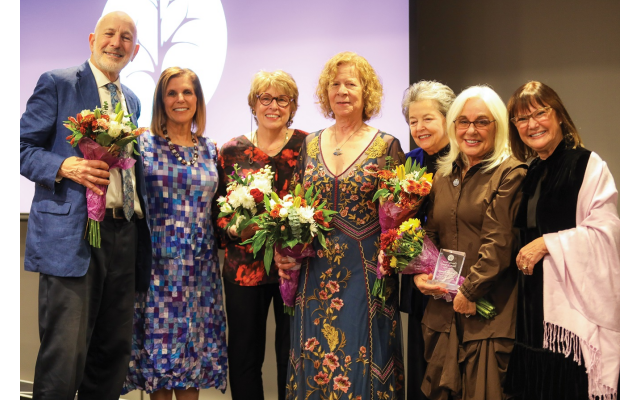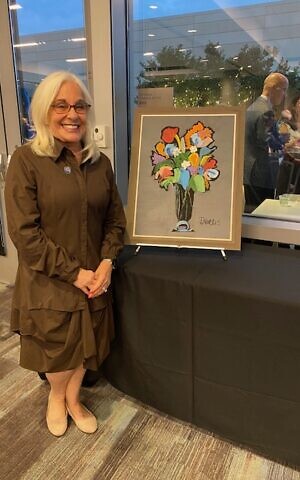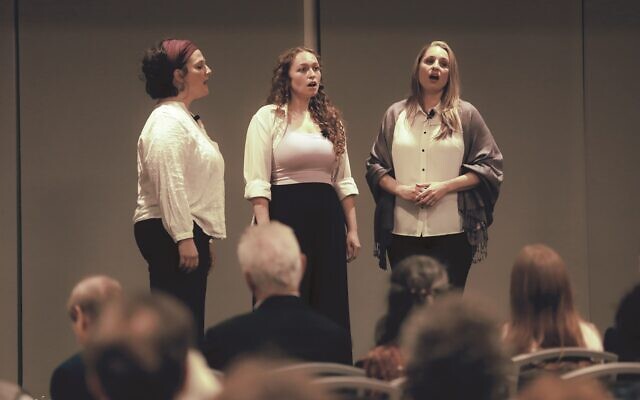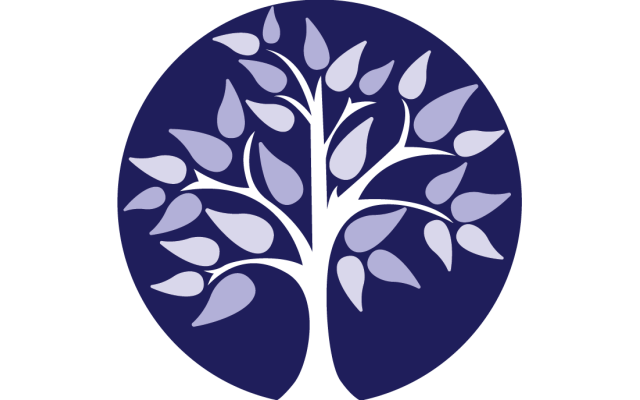Shalom Bayit Celebrates 30 Years
Held at the Terrace Room of Sandy Springs City Hall, the event was a celebration for those who are free from domestic abuse.

Shalom Bayit recognized four honorees and Wendy Lipshutz, its longtime program director, at a recent 30th anniversary event, “Empowering Survivors: Celebrating 30 Years of Shalom Bayit.”
Held at the Terrace Room of Sandy Springs City Hall, the event was a celebration for those who are free from abuse, said JF&CS Chief Executive Officer Terri Bonoff. Shalom Bayit began in 1993 following the 1992 publication of a shocking article in the Atlanta Jewish Times. JacLynn Morris, a past JF&CS board member and one of the night’s honorees, published her personal story of abuse.

Morris’s account marked the first time anyone in the Atlanta Jewish community publicly acknowledged that family violence indeed occurs among Jewish people in Atlanta. To mark the occasion, Morris contributed one of her own paintings, which was bid on during the night and went for a “generous donation,” according to JF&CS spokesperson Rebecca Cochran.
Lipshutz received a special recognition award marking her work and dedication to Shalom Bayit since its inception. Under her 30 years of leadership, the organization has empowered thousands of survivors. In speaking to the large group of supporters, Lipshutz thanked the community for embracing the mission of Shalom Bayit — to foster the social change and community response necessary to eradicate domestic violence in the Jewish community.
The honorees recognized at the event were Gus Kaufman, Barbara Hillman Levitas, Patty Maziar, and JacLynn Morris. Kaufman, a psychotherapist, activist, and advocate for social change, played a key role in the launch of Shalom Bayit and in shaping its work. Levitas was a board member of the Children’s Trust Fund of Georgia and brought the idea of the program to JF&CS, despite being told by many that “abuse is not an issue in the Jewish community.”

Maziar has been a longtime leader and advocate for the cause, including work in legislative advocacy and communications. Morris, known as the mother of the Shalom Bayit program in Atlanta, continues to give a voice to the silence about abuse in the Jewish community and to inspire others to come forward.
During the event, attendees were treated to an updated performance of “Not So Happily After,” written by Mira Hirsch and performed by the talented staff members of JF&CS. During the show, a narrator relays picture-perfect childhood stories while the onstage actors demonstrate a completely different reality, capturing the trauma of family violence, rape, and abuse. The audience was demonstrably moved by the performance, directed by Simony Levy, a well-known and respected director in Atlanta.

In closing the program, Robin Feldman, the event chair, spoke about how much Shalom Bayit has meant to her and other survivors of abuse. “I want to ensure all survivors get the support they need as they navigate this difficult path. Shalom Bayit is there for them,” she said.
Throughout the event, the imagery of a tree with blossoming leaves stood out among the crowd. The tree is representative of a tree that stands tall in the Shalom Bayit Garden at JF&CS. With seeds planted in 1998 by Lipshutz, the tree is a testament to vitality, resilience, and renewal for all affected by trauma and abuse. With October as Domestic Violence Awareness Month, its purple leaves represent the month’s official color.



comments